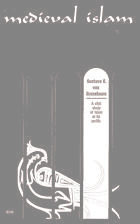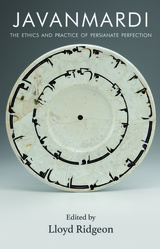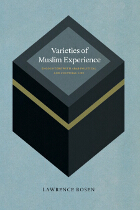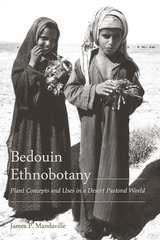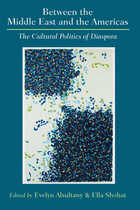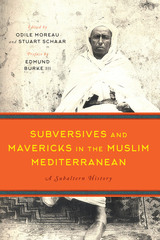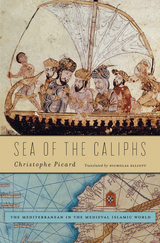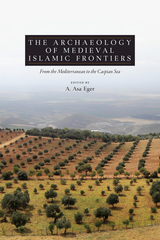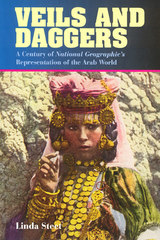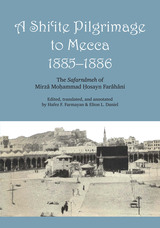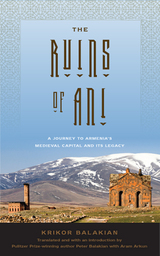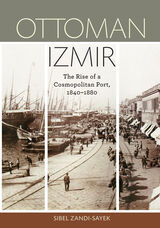Originally published in France in 2008, this splendid [book] will now have a wider international readership thanks to this fluent translation by Jane Marie Todd… [Saladin is] so filled with lively anecdote and a thoughtful, balanced analysis of the points at issue, as to be eminently readable for a wide audience… The book is a powerful reminder…of the full range of Saladin’s concerns across the Middle East. At times we are so drawn towards his epic struggle with the Christians that we lose sight of the Sultan’s need to engage in near-constant negotiation, bluff, warfare and propaganda with his co-religionists, processes that absorbed the majority of his time and energy. These matters are superbly well drawn out, but Eddé offers much more. There exists a wealth of evidence in the form of poetry, in medical, financial and military treatises, in religious and judicial material, and in architectural studies, that she has utilized to illuminate the more day-to-day aspects of his rule and the environment in which he operated… Anne-Marie Eddé has drawn a charismatic figure in a richly colored environment, to produce a refreshing, enjoyable and valuable book.
-- Jonathan Phillips Times Literary Supplement
Profound and impressive… As an analysis of the ‘discourse’ surrounding Saladin, Eddé’s account can hardly be bettered… Eddé convincingly shows the heterogeneous nature of 12th-century Near Eastern society, in which a multifaith indigenous population was controlled by competing forces from outside: Turks, Kurds, Greeks, Armenians and western Europeans. Any notion of a Manichaean clash of civilizations is unsustainable here. This is as important for Near Eastern sensibilities as it is for Western perceptions. Eddé’s richly textured account not only offers the prospect of non-polemical research but suggests perhaps the beginnings of an Arab Spring in historical scholarship, a fresh intellectual openness that, if sustained, cannot but color the burgeoning political diversity in the region it studies.
-- Christopher Tyerman Wall Street Journal
Eddé’s book portrays Saladin amid a medieval world in motion: He dispatches sons and nephews to what is now Yemen, Syria, Iraq, and Egypt; crusaders from France, England, Scandinavia, and Germany arrive in a multi-ethnic, multi-religious Holy Land… Less a conventional biography than an exploration of how Saladin came to be cited, by Dante and Sir Walter Scott, as a sort of ideal prince, and why his name is still a rallying cry.
-- New Yorker
How, asks medieval historian Anne-Marie Eddé, did a ‘relentless jihad fighter’ ultimately come to be identified as a ‘valiant, generous, and magnanimous’ figure among his former foes? Her comprehensive biography, Saladin, examines the birth and elaboration of a legend that casts a shadow even into the present day. In it, she highlights the conflict that can arise when our quest for historical truth runs up against the carefully constructed image that people of the past wanted us to see… The Saladin of legend is a palimpsest on which the agendas and concerns of whoever invoked him were inscribed. Eddé untangles the concrete facts from the endless revisions and reinterpretations that turned Saladin into a larger-than-life icon over the ages.
-- Michael Patrick Brady Boston Globe
An impressive biography of Saladin…supported by a multiplicity of sources, known or previously unknown: chronicles, travel narratives, letters, poems, administrative treatises… Although [Eddé] is intent on placing that extraordinary figure within his context, on understanding his conception of power and how he founded his dynasty, she endeavors above all to analyze the discourses of which he has been the object from the Middle Ages to the present, discourses serving to fashion his myth. The result of that exacting and rigorous undertaking is at once accessible to the non-specialist and compelling, allowing us to rediscover a Saladin richer and more complex than his Western or Eastern legend.
-- Georgia Makhlouf Le Jour
This fastidious and superbly well researched book is, in some ways, the biography of an idea. We don’t know all that much about the historical Saladin, and next to nothing about him personally—not even what he looked like… Eddé’s account of Saladin’s life…is always lucid and sensible, and instills complete confidence in the reader… Above all, this book is valuable for giving us a sense of what the Crusades looked like from the other side.
-- Sam Leith Spectator
Eddé mines below the official rhetoric of Saladin’s secretaries and administrators to develop a historical account independent of the many mythologies surrounding his biography… Extensive research creates a picture readily distinguishable from the many Saladin myths.
-- Kirkus Reviews
Eddé does an admirable job of showing all [Saladin’s] complexity, from human, religious, and cultural standpoints, wading through the mythology and hagiography surrounding him to present a more balanced view of this historical figure who was so well suited to his times.
-- John Sandstrom Library Journal
In this insightful biography, the Muslim hero who impressed even his Christian adversaries personifies the complex religious and cultural dynamics of the crusading era… Eddé…picks carefully through tendentious, often hagiographic medieval sources to assemble an objective portrait of Saladin, and sifts the legends surrounding him—many of them self-generated—for clues to the ideologies of his day; presented by himself and others as the defender of a sacred community against a cruel, impious, animalistic Christian Other, he was even to Europeans the mirror image of the Crusader. Eddé’s shrewd and informative, if stolid, biography shows us how much two clashing civilizations had in common.
-- Publishers Weekly
A central figure in the history of the Crusades, an enlightened sovereign, a reunifier of the Muslim world, Saladin…is more than an icon in the East, he is the greatest figure of its glorious past and the model of the ruler par excellence. Profoundly attached to Arab values, he is awash with unparalleled glory and respect from the time of his reign until the present, and from his own territories to Europe. That cannot fail to raise problems when it comes to writing his biography. In fact, between hagiographical accounts emerging directly from his close circle and hostile criticism from his fiercest detractors, there was no objective middle course. This book constitutes the first step on that path: rigorous without being academic, resituating the man within his context and noting the influences exerted on him, it proposes to discover, beyond the usual panegyrics, the hidden face of Saladin, a portrait in light and shadow.
-- Chrysostome Gourio, Libraire Le Comptoir des Mots

